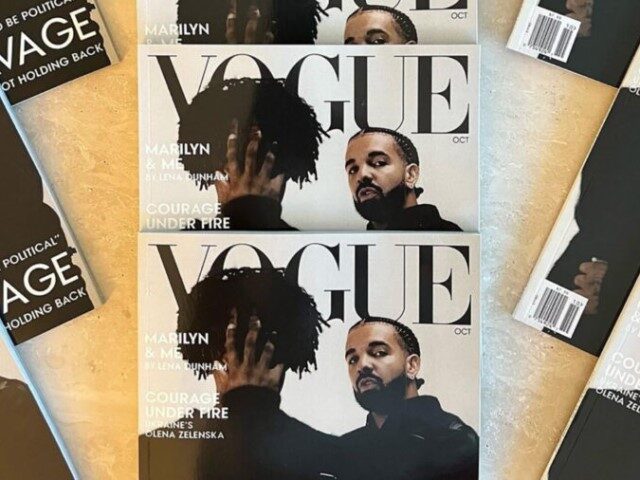The publisher of Vogue magazine has “an easy case” in a trademark lawsuit against rappers Drake and 21 Savage, according to legal experts, who say the suit could cost the rappers millions.
The drama started after Drake and 21 Savage shared photos — and then later distributed copies — of a fake Vogue magazine featuring them on the cover in the days leading up to the release of their collaboration album, Her Loss, according to a report by NPR.
Vogue publisher Condé Nast responded to the fabricated magazine cover by filing a 30-page lawsuit on Monday, alleging that a “counterfeit version of perhaps one of the most carefully curated covers in all of the publication business” has been created and has violated the company’s trademark rights.
Condé Nast is seeking at least $4 million in damages — or triple any profits that Drake and 21 Savage obtain from the album and fake Vogue cover.
“I think it’s it’s an easy case for them to win,” New York University law professor Barton Beebe told NPR. “And I think that they’ll get the injunction, the injunctive relief, ordering the marketing campaign to stop.”
“It seems to me an interesting question would be if Vogue wants to pursue this all the way to damages, because they could be in the millions for this kind of conduct,” Beebe added.
The law professor added that another option for Condé Nast could be filing a temporary restraining order or a preliminary injunction to halt further promotion of the fake Vogue.
As of Wednesday, Drake appears to have since deleted his Instagram post showcasing the fabricated Vogue magazine cover, NPR noted.
Additionally, others could file similar lawsuits, as the rappers also recorded mock performances for an NPR Tiny Desk concert and Saturday Night Live.
“They’re just trying to sell something, and they’re making up fake news to do it — so it would be understandable if the other targets of this media campaign also brought suit,” Beebe said.
But UCLA law professor Mark P. McKenna says the rappers could argue that trademark law “does not have a specific parody defense.”
“The basic idea of trademark infringement is that the plaintiff has to show likelihood of confusion,” McKenna said. “And so, what you see some courts sometimes say is, if the parody is clear, then there’s not going to be any confusion because people will understand that it’s a parody.”
You can follow Alana Mastrangelo on Facebook and Twitter at @ARmastrangelo, and on Instagram.

COMMENTS
Please let us know if you're having issues with commenting.